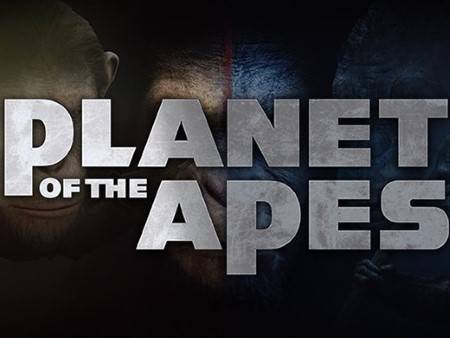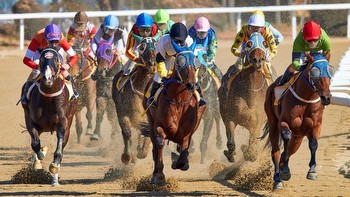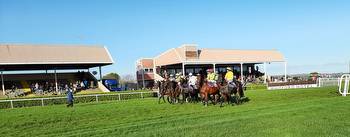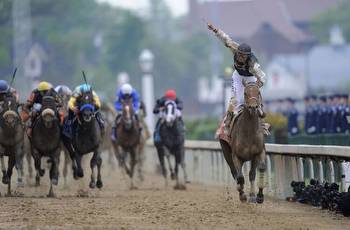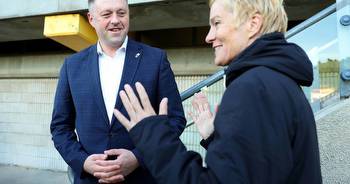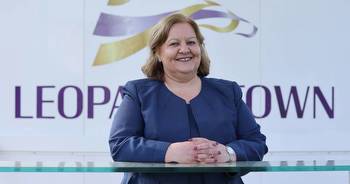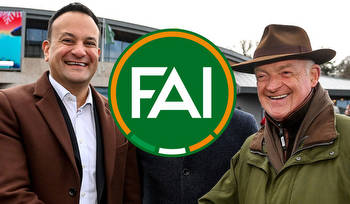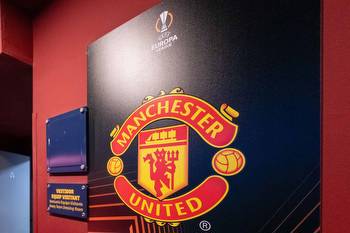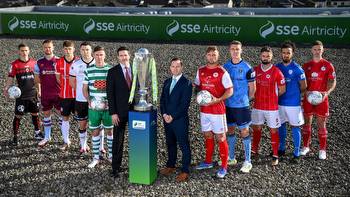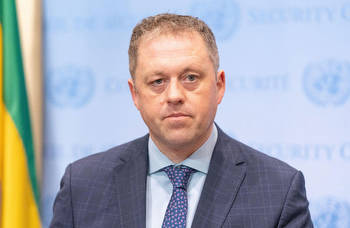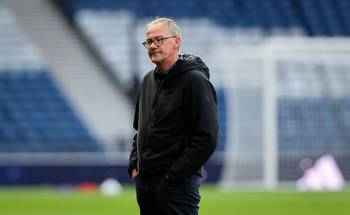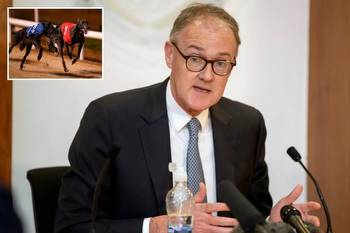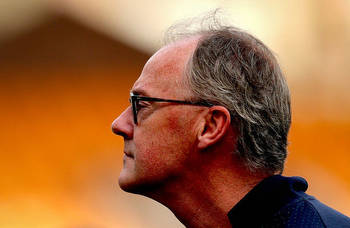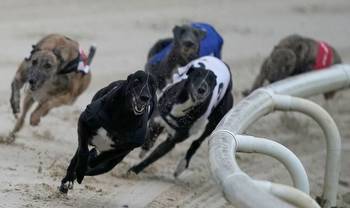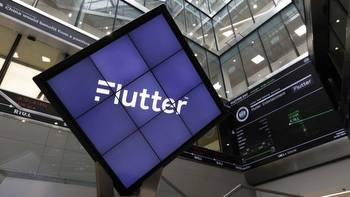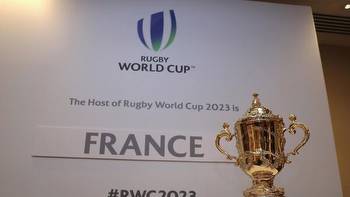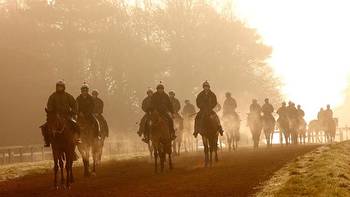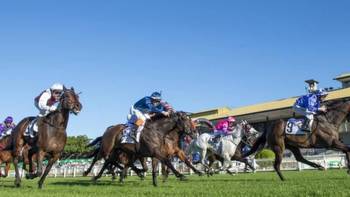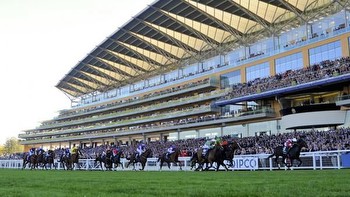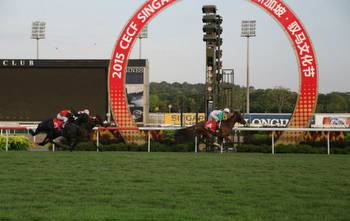Roy Barrett on leading the FAI: I get why people were suspicious about my intentions
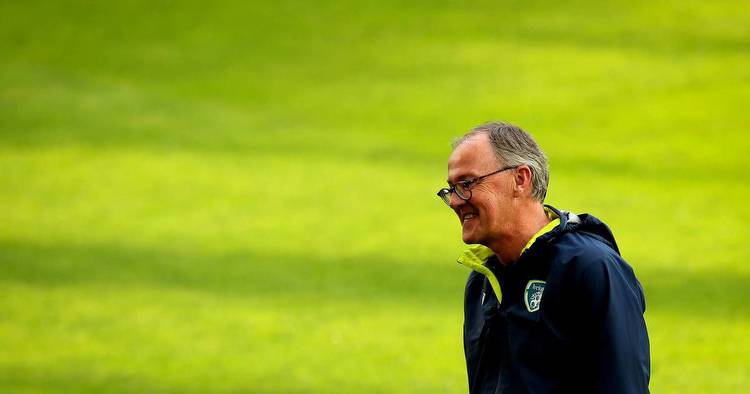
Football in Ireland is not a business in the sense that the outgoing FAI chairman Roy Barrett was accustomed to at Goodbody Stockbrokers for nearly three decades.
Since January 2020, Barrett has steered soccer’s governing body away from insolvency. A turbulent, at times frustrating experience, but nothing compared to his chosen career, particularly those early London days at investment bank SG Warburg.
“I was offered a number of jobs but the one in stockbroking in Warburg’s came just after The Big Bang had happened. That was 1986, I went in there in 1987,” Barrett recalls over morning coffee. “When I joined, I was the only Irish person on a floor of a thousand people. However, I wangled my way in through the interviews. I was really glad I did.”
Returning home to join Dermot Desmond’s NCB Stockbrokers, before becoming Goodbody managing director at 32, making the switch into sports administration, book balancing and a little PR never seemed overly daunting. Never boring either, but “manageable” like the FAI’s €40 million “net debt”.
Be it stock exchange or a football debt, strategic number crunching has never felt like “work” to the 60-year-old.
The genesis of his time overseeing FAI business goes back to the since-disbanded Visionary Group, the Niall Quinn-led consortium of businessmen seeking to revive the League of Ireland and restructure the FAI, then under the firm grip of John Delaney.
An event at The K Club in September 2018, when Goodbody sponsored a reunion for the Euro ‘88 squad, allowed Barrett to hear what Quinn and future interim FAI CEO Gary Owens were proposing.
“There was a huge level of suspicion when I came in [to the FAI], and of Niall and Gary because of this relationship,” Barrett explains. “The reason I asked them to join in the roles that they did (Quinn became interim assistant CEO) was I just thought it needed a clean break from what had gone before and people coming from the outside rather than within.
“I get why people were suspicious and they probably thought all sorts about my intentions and what I wanted to do. At times I was confronted by it. I didn’t have to dream it up. It was said directly to me in open forum.”
What I am hoping now with the FAI is that it will be a more honest organisation
Quinn and Owens, appointed by Barrett in January 2020, were gone inside 10 months.
“Niall was raised on the game,” says Barrett. “He has 92 caps for Ireland. He had a real passion for Irish football but like many other people he never liked how it was being managed. When the time came, he put his hand up. I think he found it tough because it is tough.”
Boardroom politics ensured Quinn was no longer swimming in familiar waters. “And he had his own stuff going on. I think he came in at a good time and it was the right time to move on as well.”
The FAI had debts of €70 million in 2019 when Delaney was unseated from his role at the head of the organisation. The debt in 2022 was down to €63.5 million but the chairman continually emphasises the “€20 million in cash on the balance sheet”.
“I don’t know why people don’t take that into account but, hey, there it is. As a corporate entity, it is manageable and continues to produce profits, I hope, and surpluses will pay down the debt in time.”
The fact that Barrett, a stockbroker, albeit one with a healthy background in amateur football, was chosen to lead at this crucial moment in the history of Irish football is a story in itself.
Barrett confirmed to The Irish Times that his appointment as chairman of the FAI board came via a direct recommendation by the governor of the Bank of Ireland Patrick Kennedy. The same bank Barrett proceeded to negotiate a rescue package with, which was achieved within 23 days of his appointment. The FAI received no write down, €24 million of the €52.5 million loan guaranteed by Uefa, the rest underwritten by the government.
“These meetings, leading up to them there would be loads of media coverage, pointed questions and suspicion as to what I was doing or whose bidding I was there on behalf of – be it to take over Irish football or an appointee or the bank or the government, or whatever,” Barrett says.
This probably goes to a fear about “how Ireland really works,” especially following the Delaney era, and Kennedy did recommend Barrett to the recruitment company, Amrop.
“So I believe, yes,” Barrett replies. “Recommend would be a strong word, [Kennedy] knew Amrop which I didn’t. I’d never talked to a head hunter, never in my life actually.
“They called me and I met them. It didn’t take me long to say ‘yeah, I’ll do it’ but it was completely independent of anybody else. And actually, I did ring Patrick when I first met them to say ‘Jaysus Patrick, what did I ever do to you, you’ve put me forward for this?!’ I talked to him for about five minutes. But then you get all this suspicion.”
What struck me when I came into the FAI was staff morale, and staff confidence in particular, it was shot to pieces
And did Barrett meet former minister for sport Shane Ross?
“I was very clear when I met Amrop and they asked me to consider becoming chairman and I said ‘I will consider it but I want to meet the minister, I want to meet the department officials’,” Barrett says. “I wanted to meet Grant Thornton and I wanted to meet the FAI chairman Donal Conway and hear what they all had to say. I wanted to look at the books and look at what they were proposing to do.”
And did he ever talk to John Delaney?
“I have never met John Delaney.”
A “complete mess financially” is how Barrett described the FAI in January 2020, but he dived in anyway, which begs the questions: why?
“To fix it.”
Barrett captained Blackrock College to a Leinster schools soccer title in 1982. The late “Smokey” Joe McGrath was the coach then and in 2003 when Mark Vaughan led the school to an All-Ireland title. He was in the same class as Shelbourne FC owner Andrew Doyle and rugby internationals Brendan Mullin and Neil Francis. Barrett played junior cup rugby alongside the rugby duo, who won a combined 91 Ireland caps.
“When I was supposed to be training on the JCT every Sunday unbeknown to anybody I’d go off and play for Leicester Celtic,” he remembers. “They would have wanted me to continue playing rugby but I wanted to play football, and that was it.”
There is a story about Blackrock beating Greenhills from Walkinstown in Dublin in that 1982 final and the Spiritan priests refusing to formally recognise the achievement, so the team captain’s father – Dick Barrett – booked a function room in the Tara Towers hotel in Booterstown.
“That was my dad, yeah,” Barrett recalls.
“Funny thing, I was asked back to the school last year and Stephen Kenny came with me. They were playing in the final of the equivalent tournament for the first time since 1982. Stephen said a few words, which was very good of him.”
Described by a former team-mate as a good player “with those long legs to take the ball off you,” Barrett played on the UCD freshers, while already trading stocks, and League of Ireland B before joining his brother at Pegasus FC.
“I’d play eight days a week if I could,” he says.
When the chance to chair the FAI board came up, he needed five minutes to think about it.
“I knew if I didn’t accept it I would regret it because I am like many people who like football, who played football, who see their kids play football and a lot of what I saw over the last generation really annoyed me,” Barrett says.
“In relation to other sports, football was constantly the poor relation, it was constantly a sport people love but could not have a huge amount of pride in what they saw, because of how the game was managed and administered.”
Why the horse racing industry alone should get the benefit of a betting levy where 40 per cent of the bets are on football is just beyond me
The FAI in 2023 is almost unrecognisable to 2019, with football, corporate and marketing expertise recruited from the England FA to Dunnes Stores. Jonathan Hill, appointed chief executive after four interim CEOs – Noel Mooney, Paul Cooke, Rea Walsh and Garry Owens – continues the search for a primary shirt sponsor.
“If and when that is sorted, [critics] will find some other thing to bang on about, I have no doubt. Again, it has been one of those things where you have to build up trust in the organisation. We are making a huge amount of progress. The [Castore] kit deal is the biggest commercial deal, by a distance, that the FAI has ever done,” Barrett says.
He will not reveal the figures but it is apparently better than the 10-year, €34 million deal struck with Umbro in 2009.
The Office of the Director of Corporate Enforcement’s (ODCE) ongoing criminal investigation into Delaney’s time at the FAI leaves a cloud over the association but the chairman’s focus switched to the trauma suffered by long-serving staff.
“What struck me when I came into the FAI was staff morale, and staff confidence in particular, it was shot to pieces,” Barrett says.
“You had some really brilliant people, really passionate about what they did but just beaten down and there seemed to be a management style within the FAI where every decision of any note was made by one person.
“That is completely wrong. But when it does go that way the outcome is what we have seen. What I am hoping now with the FAI is that it will be a more honest organisation.”
So how is staff morale now? “Improving. But there is more to go. When people lose trust, it is really hard for that to be regained.”
Barrett’s press conference in January, to announce his departure, also included calls for the Government to increase the betting levy from 2 to 3 per cent. Share the spoils of gambling and overnight work could begin on decaying facilities and the long road towards a sustainable industry could begin.
“The Government are presiding over a betting levy situation which is absolutely anarchic and wrong,” says Barrett. “They should stop prevaricating and change it.”
He takes direct aim at the “myth perpetuated” by both horse and greyhound racing industries, that they deserve the money bet on all other sports while football must entice private investment.
“The horse racing industry gets €70-odd million, [€68.9 million] goes to prize money [supplemented by media rights income and sponsorship],” says Barrett. “The top 10 owners in national hunt and flat get one-third of the prize money. That’s €20 odd million. That’s where it goes.
“Why the horse racing industry alone should get the benefit of a betting levy where 40 per cent of the bets are on football is just beyond me. You talk about employment but look at the numbers; there are 29,000 employed in horse racing, but 6,500 are in bookies shops.
“There is a Deloitte report in 2017, commissioned by Horse Racing Ireland, which keeps perpetuating this myth that we need all this money to employ people. There is only two or three thousand people employed directly in stables and they are getting all this money [and another 4,100 breeders]. It is completely wrong.”
I fundamentally believe that as a country we should be investing more in football. I’ll bang on about that ‘til the day I die
The alternative would help fund 10 to 12 elite club academies around the country that require €500,000 a year to exist on a comparable scale to middle tier European rivals.
“I fundamentally believe the Government are going to help. They are on the record, the previous taoiseach said they are going to help. We spent 0.4 per cent of our GDP on sport, which is amongst the worst in Europe. That is all sport. It is half the EU average,” Barrett says.
“This levy was put in place in 2000 to deal with this free rider concept, which is actually the betting companies getting away with using the content of horse racing without paying for it, to [help advertise] greyhound and horse racing.
“The level of participation in football and the good that it can do is streets ahead of anything horse racing can do. And to say it provides rural employment, well, look around the country – there are thousands of [soccer] clubs, in every village in the country. Do they not count?”
The ballot box offers leverage on the levy.
“At some point somebody has to say stop – let’s get our priorities right here. How many people are invested in sport, how many are invested in football? They all vote.
“I fundamentally believe that as a country we should be investing more in football. I’ll bang on about that ‘til the day I die.”
